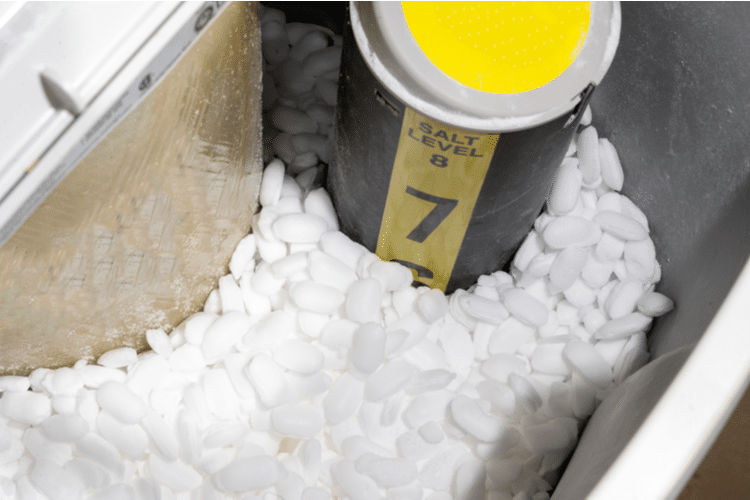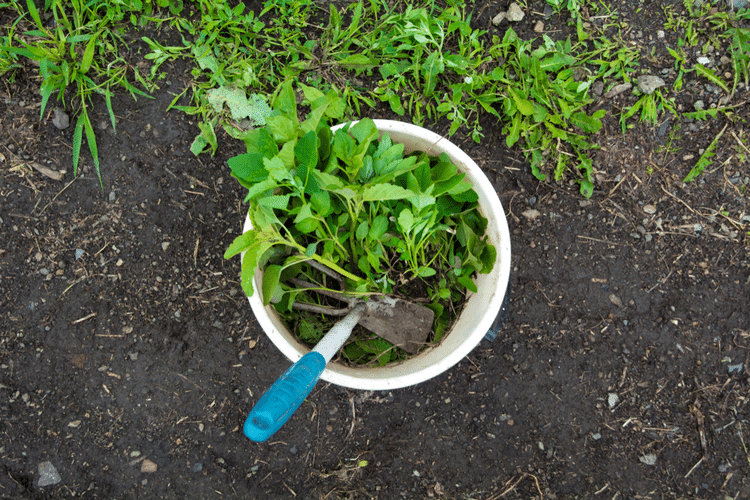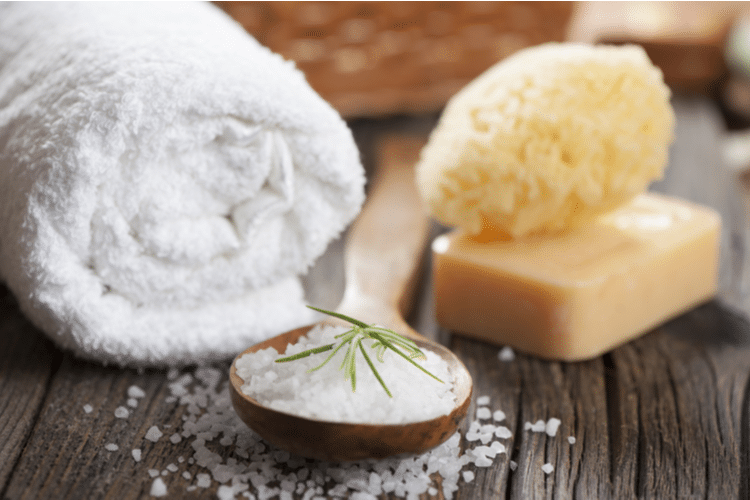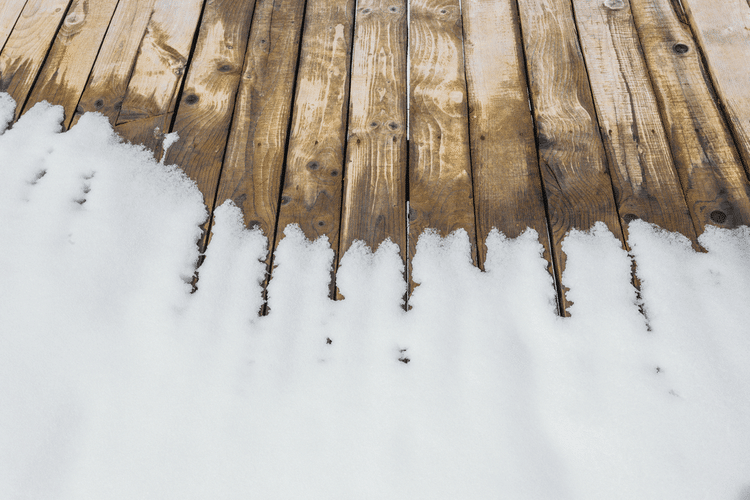Water softener salt is not poisonous but also isn’t edible. It is manufactured for use in water softening systems to remove hard water minerals.
In this article, we’ll discuss:
- What water softener salt is made of
- Is it poisonous?
- Water softener salt vs table salt
- Other uses for water softener salt
Can You Eat Water Softener Salt?
You should not eat water softener salt, although small amounts won’t hurt you. The sodium chloride, and sometimes potassium chloride used for water softener is often unprocessed, although some brands process their salts more thoroughly than others.
While that might not sound too bad, water softener salt also usually contains a lot of dirt particles since it is not cleaned for consumption in the same way table salt is.
Don’t you consume water softening salts when drinking water that is treated by a water softening system? While water softening systems do leave trace amounts of sodium or potassium in your water, the levels are perfectly safe for most people, depending on the main ingredient used.

What Is Water Softener Salt Made Of?
Water softener salt is mostly made of sodium chloride (NaCl). Although less common, some brands also use potassium chloride (KCl), which is not a salt. It’s also not uncommon for brands to combine the two salts.
Many manufacturers also use various additives in their salts, depending on the type of salt.
Is Water Softener Salt Poisonous?
Water softener salts are not poisonous but could cause stomach distress if a large amount is ingested. As previously mentioned, they can contain additives and some dirt since it is not cleaned nor processed for human consumption. You should not feed the salt to animals either.
While water softener salt is not poisonous, some medical conditions can be agitated by using these salts. Since the salts transfer a minimal amount of the active mineral to your water via the water softening process, you might need to consult your doctor if you suffer from medical conditions that can be aggravated by excessive sodium or potassium.
Water softeners made with sodium chloride leave trace amounts of sodium in the water, while potassium chloride salt leaves trace amounts of potassium. People required to watch their sodium intake may need to use a potassium chloride water softener. Those with kidney or other renal issues may need a sodium chloride water softener.
If you have one of these medical conditions, your doctor can recommend a safer option for you.
Is Water Softener Salt the Same as Table Salt?
Chemically, water softener salt made from sodium chloride is similar to table salt. The main ingredient in both is sodium chloride, but the sodium chloride in water softener is not processed as thoroughly and often contains other additives.
In addition to sodium chloride, table salt contains iodine and a few other trace minerals not found in water softeners. Table salt obviously does not contain any of the dirt particles or additives found in water softeners since sodium chloride is manufactured for human consumption.
Can You Use Water Softener Salt to Make Ice Cream?
Water softener salt can be substituted for the coarse salts commonly used in ice cream machines and makers to keep the cream from turning into a solid during the churning process. However, some salts may be too coarse to be used in an ice cream maker.
Check your manufacturer’s instructions before using the salt in your ice cream maker.
What Are Other Uses for Water Softener Salt?
Water softener salt offer other uses besides softening water and keeping ice cream from freezing solid.
Use Water Softener Salts to Kill Weeds

Water softener salt may not be poisonous to humans but it can kill weeds. Weeds and salt do not mix, especially high amounts of salt. Sodium throws off the water balance in plants until they become dehydrated and die.
To kill weeds, simply mix about a cup of salt per gallon of hot water. You can pour it over weeds or use a sprayer to apply. Just be careful to keep it off plants and grass. They hate salt as much as the weeds do.
Use Water Softener Salt to Kill Garden Slugs

In the same way water softener salt kills weeds, they also will kill slugs in your garden. Pour a ring of salt around any plant that slugs are destroying.
Remember that rain or sprinklers will wash the salt into the soil. You don’t want to kill those same plants you are trying to protect from the slugs so use the salt sparingly.
Use It to Make Bath Salts

You can use crystal size water softener salt to make bath salts. Be sure to use the crystal size. Anything bigger may be too rough on the skin.
Substitute water softener salt for Epsom salt in most bath salt recipes.
Use It to Melt Snow

Just as water softener salt can prevent your homemade ice cream from completely freezing while churning, they can also melt the snow on your driveway and sidewalks. The salts lower the freezing temperature of the ice, turning the snow back into water. Some say water softener salt is more effective than rock salt on icy driveways.
When using the salt to melt snow, be mindful of the salt in the water running off of your driveway and sidewalks. It can kill greenery, although you likely don’t have to worry too much about it during winter.
Other Benefits
When used with a water softening system, water softener salt can prevent mineral spots on your dishes and glassware, whether washing them by hand or in the dishwasher. They can also help stop soap film from building up in your bathtubs, sinks, and washing machines.